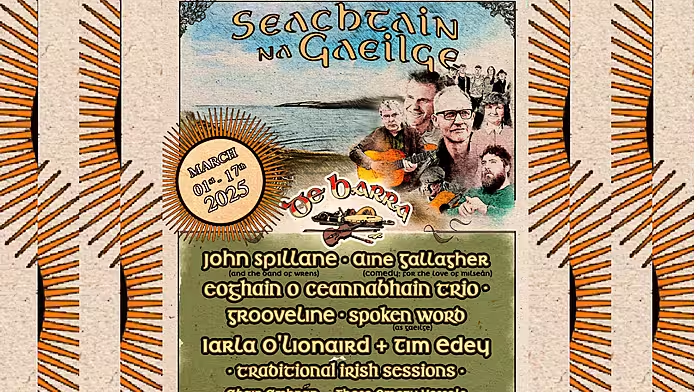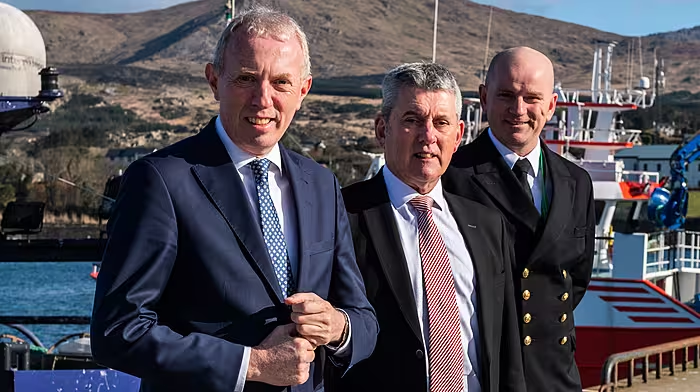Some influential British politicians have demonstrated a breathtaking lack of knowledge of the issues involved in their withdrawal from the EU, especially relating to the Northern Ireland situation, never mind their arrogance.
TÁNAISTE Simon Coveney’s exasperation at the antics of British Prime Minister Theresa May and her dysfunctional government was understandable when he declared at the Oireachtas Foreign Affairs Committee last week: ‘It is incredible in my view that the British parliament has allowed it (Brexit) to come to this’ and that it was ‘regrettable’ that the government and opposition parties in the UK have not co-operated in the way parties here have.
He has endured so much frustration during the Brexit negotiations which has been added to by the ongoing failure of the British Parliament to ratify the withdrawal agreement made by the EU with Theresa May last November. Now, it looks as if the PM is cynically trying to wind down the clock to as near as possible to the Brexit date of March 29th in the hope that MPs will accept the withdrawal agreement in the end as the lesser of two evils – the other being a no-deal exit from the European Union on that date.
There is also a strong probability that the British Government could ask for an extension of time beyond the March 29th deadline, which the EU-27 would most likely grant if they thought it could lead to an orderly withdrawal. However, all that is emanating from Westminster at the moment is confusion and a total lack of cohesion, which does not augur well for the prospects of a withdrawal agreement being endorsed by a majority in parliament any time soon.
The backstop clause concerning Northern Ireland has been the big sticking point for the ‘hard Brexiteers,’ which suits the Democratic Unionist Party, who hold the balance of power in the British Parliament and on whom Theresa May is dependant to prop up her minority government. However, in the absence of any alternative agreed mechanism, the backstop is necessary to ensure that there is not a return to the hard border between the Republic and Northern Ireland, and that the integrity of the Good Friday Agreement is not undermined.
Yet, in spite of all of the obstacles, our Tánaiste somehow remains optimistic, telling the Foreign Affairs Committee: ‘I still believe there is a way to get through this process and to have a managed, controlled and predictable Brexit.’ How he can justify this statement when there still is no formal dialogue on the matter going on between the two main parties in the UK, the Conservatives and the Labour Party, is a mystery.
Describing the withdrawal agreement as a ‘fair deal,’ Mr Coveney stated the obvious when referring to the situation in Britain that ‘the problem here is politics.’ Ignorance is probably a bigger problem in that some influential British politicians have demonstrated a breathtaking lack of knowledge of the issues involved in their withdrawal from the EU, especially relating to the Northern Ireland situation, never mind their arrogance.
Nobody can deny the right of the majority of people in the United Kingdom who voted for Britain to leave the EU in the 2016 referendum to have the will of the people implemented, but crashing out without a withdrawal agreement is reckless in the extreme on the part of their politicians. What’s on the table may not be what they were looking for, but they should also realise that it would have been madness on the part of the 27 remaining EU countries to agree to a deal that would make it more attractive for Britain to be outside the Union rather than in it.
Most of the well-off Conservative Party ‘hard Brexiteers’ are wealthy enough to survive the financial fall-out of a no-deal Brexit, unlike the UK’s ordinary citizens – the so-called squeezed middle like we have here – who end up carrying the can for bad decisions by their politicians. There will be financial implications for Ireland too as any tariffs that would be introduced if the UK leaves the European Customs Union would add to the cost of living here also.
The Tánaiste was critical of the fallacy being spread in the UK that the EU needs a deal as much as they do: ‘That is just factually not true, first and foremost. But we (the EU) do want a deal. We want to be reasonable and fair about that.’
Meanwhile, notwithstanding Mr Coveney’s great optimism, the Irish government has its Omnibus Bill on standby with a raft of legislation to deal with the eventuality of a no-deal Brexit. It may well be needed, but hopefully not.
---
From cutting edge treatments to confidence-boosting course for teens and tweens, skincare expert Sherna Malone wants us all glowing.








